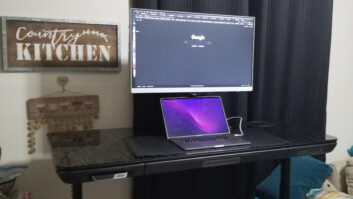What may be hot local news in Philly, Denver or Seattle usually doesn’t rate even a mention here in the New York metro area. Likewise, it’s likely the outside world hasn’t heard much about a dispute here between two companies headed by alpha males that involves greed, spite and just plain orneryness, as well as business policy.
It is between Cablevision, a firm headed by Charles Dolan, who pioneered cable TV in New York City and launched HBO, the first successful premium cable channel, and the New York Yankees, headed by George Steinbrenner, who, I assume, needs no introduction.
Importantly, in addition to operating a New York metro cable system having more than three million subscribers, mainly in upscale suburban communities, Cablevision is also a major cable TV program supplier. It owns, or has major stakes in, the AMC, Bravo, Fox Sports, WE, IFC and MSG channels, along with Madison Square Garden itself and the N.Y. Knicks and Rangers basketball and hockey franchises.
Until last year, MSG carried any Yankees ball games that weren’t broadcast on free TV. This year, the Yankees launched its own cable channel, the YES Network. It carries all but the 30 Yankees games being made available on free TV, along with other sports programming. And like all of Cablevision’s channels, YES is advertiser supported.
YES charges cable systems $1.85 per month per subscriber for its service, with the proviso that it is included as basic programming. It’s carried by 28 of the 29 systems in New York, New Jersey, Connecticut and Pennsylvania, but not by Cablevision.
Cablevision alone says it would have to increase prices to all customers if it accepted YES’ terms. Instead, the company, which already has the highest basic rates in the region, proposes to add YES for Yankees fans as a $10 per month option. YES rejects that, and as of this writing, the two aren’t even in negotiation.
History indicates only 15 percent to 20 percent of homes would accept YES as a pay channel, cutting potential viewers down by 80 percent or more and making YES a much less attractive buy for advertisers — the same ones which buy time on MSG.
Thousands of Yankee-loving Cablevision subscribers, including many sports bars, have already switched over to DirecTV, which carries YES as a basic service. EchoStar, operator of the competing DISH satellite service is, like Cablevision, balking at YES’ cost.
Cablevision netted $1 billion on revenue of $4 billion last year, so what it would lose by adding YES to basic (or might net by making it a pay-extra premium channel) doesn’t add up to very significant numbers. Nor are the numbers important when compared with the results of another Cablevision enterprise, The Wiz, a 43-store area retail chain it acquired in bankruptcy proceedings in 1998.
In The Wiz, Cablevision obviously saw an opportunity for synergy. It could close the loop by selling the TVs and other hardware that consumers use to receive its services. Since its purchase, The Wiz has run up $422 million in operating losses, including $121.7 million last year after a $13 million restructuring charge and a $17 million write-off of modems for the discontinued At Home cable TV service.
While this mano a mano stand-off leaves most Cablevision homes without Yankees games, the local media is thriving. YES and DirecTV are running television and newspaper ads offering an installed two-room DirecTV system for $39.95. Cablevision is responding with TV and print ads showing unhappy DBS owners switching back to “reliable” cable, and is offering a multiroom installation for $9.95.













